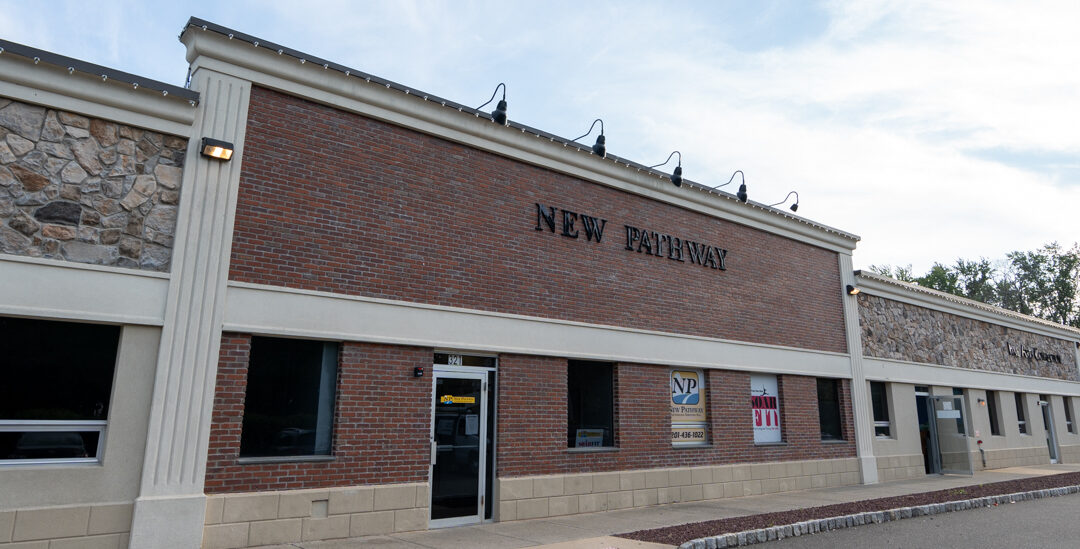If your teen’s academic performance and grades have suddenly declined, you might wonder whether there’s a serious cause or if it’s just due to a temporary struggle or transient stress. While academics during the adolescent years can be challenging and intense, and scholastic performance is impacted by numerous factors, an academic decline is not something to leave unaddressed. Sometimes, it can be an indication that your teen is facing mental health or behavioral challenges, including substance use.
Guardian Recovery understands the unique challenges associated with adolescence, including substance use and mental health concerns, and we know what you’re going through right now as a parent, guardian, or loved one of a teen who’s struggling. If you’ve spotted some concerning signs in your teen and would like to discuss it further, reach out for a free and confidential conversation. We specialize in helping teens aged 13-17 find and achieve lasting change so they can fulfill their true potential.
Your Teen's Transformation Starts
Here!
Guardian Recovery Adolescent can help your teen take control of their lives, putting them on a path to a brighter future filled with possibility.
Common Causes of Academic Performance
A decline in academic performance can be due to a wide range of factors, some of which can be relatively minor and are easily addressed with proper intervention, such as psychosocial support or tutoring, while others can be more serious and require professional help, such as mental or behavioral health care. If you’re worried about your child, it’s important to talk to them about your concerns. Addressing the situation early on may help prevent things from worsening, shows your love and support, and can help address the underlying issues. Some of the common causes of sudden academic decline can include:- A lack of motivation.1
- Stress due to any number of factors, like test anxiety, interpersonal relationship problems, family issues, or other environmental concerns.2
- Trauma, such as sudden loss and bereavement.3
- Bullying.4
- Unaddressed or unrecognized physical health issues.
- Mental health concerns, such as attention-deficit/hyperactivity disorder (ADHD), depression, anxiety, or conduct disorders.5
- Poor sleep.6
- A lack of academic support.
- Unqualified or poor teachers.
- An unsafe or unsupportive school environment.
Academic Red Flags & Substance Use Connection
If your teen has had a certain regular pattern of academic performance throughout their studies and experiences a sudden decline in grades, attendance, or motivation, you’re probably understandably concerned and want to help. While not all scholastic problems are attributable to substance use, you should be aware of the possible warning signs. A red flag refers to a behavior or incident that goes beyond what would be considered normal for most teens, or a behavior that deviates from what you consider to be normal in your own child. Certain academic red flags can be a cry for help, potentially signify substance use or mental health concerns, and indicate that you should take immediate action. These can include:7- A significant decline in grades that is dramatically different from your teen’s normal performance.
- Suddenly associating with antisocial or negative peers.8
- Consistently avoiding homework or studying for exams.
- Aggressive, angry, or violent outbursts.
- Inappropriate behavior in the classroom or school environment.
- Skipping classes or entire days of school.
- Faking illness or making up excuses to avoid school.
- Frequent and unexplained nervousness or anxiety.
- A lack of motivation.
- Frequent sadness or tearfulness.
- A noticeable change in appearance or mood.
- Threatening others, including other students or teachers.
Hidden Substance Use Indicators
Spotting the signs of substance use in a teen isn’t always easy. Some signs can be easily disguised, some signs can overlap with other problems, such as social or psychiatric issues, and certain behavioral issues are simply normal during adolescence. It’s important to talk to your child if you’re concerned that they might be using substances, even if you’re not sure. Only a qualified medical or mental health professional can diagnose a substance use disorder, but being aware of the potential or hidden indicators can help you know when it’s time to reach out. In addition to a sudden decline in academic performance, additional signs of teen substance use can include:9- Withdrawing from family and friends.
- Low motivation compared to usual.
- Appearing depressed or experiencing low mood.
- Secrecy, lying, or sneaking around.
- Abrupt changes in their friend group.
- Missing school or work regularly.
- Frequently violating curfew.
- Increased arguments with family members.
- Poor personal hygiene, such as skipping showers or not changing clothes.
- Detectable odors of alcohol or smoke.
- Presence of drug paraphernalia, like pipes or rolling papers.
- Sudden weight fluctuations.
- Visible track marks on arms or legs (or wearing long sleeves or pants in warm weather to conceal them).
- Unexplained nosebleeds that are not related to allergies or a cold.
- Persistent fatigue or lethargy.
Behavioral Changes in School
As mentioned previously, teens who use substances may display any number of behavioral problems, both at home and school. This can include increased fights with peers, teachers, or family members, decreased motivation, skipping classes, missing school altogether, depression, or anxiety. If these problems remain unaddressed, teens not only risk consequences to their grades and academic future, they can also receive disciplinary actions like detention and even possible expulsion, which can set the stage for severe problems later on in life.10Complimentary Insurance Check
Find Out Today!
"*" indicates required fields
Substance Impact on Learning
Substance use during adolescence can lead to serious and further consequences that affect learning, both in the immediate future and down the road. This is because drug and alcohol use impacts the developing brain, causes problems with working memory and attention, and impairs cognitive development and performance.8 It’s also important to note that teens who use substances have a much higher risk of developing a substance use disorder/addiction, which can continue into adulthood and negatively affect a teen’s personal and professional future.11Effects on Academic Performance
Drug and alcohol use can result in a deterioration in academic performance, both directly and indirectly.8 Memory issues and attention problems caused by brain changes due to substance use can negatively impact your teen’s ability to effectively learn and retain information, which can lead to both sudden or gradual declines in their academic performance.8 Academic performance isn’t just the result of intellectual ability and functioning, however. Teens who associate with negative peer groups who use substances can also experience decline in academic performance because of the impact this has on their overall motivation, school attendance, and social and behavioral skills.8Our Locations
Our Facilities & Teams Transform Lives
Changing lives by providing comprehensive support and rehabilitation, empowering individuals to overcome addiction and regain control of their health and well-being.
Assessment & Intervention
If you are concerned about a sudden decline in your teen’s academic performance, it’s important to seek help to determine the causes and prevent the consequences. You might speak to your child’s school psychologist, or schedule an appointment with your pediatrician or a qualified mental health professional. You can also call us at 1-888-483-1517 for a free and confidential initial assessment over the phone.
Our teen rehab programs offer a full continuum of care that includes different evidence-based therapies and academic intervention to address the root causes of behavioral and psychological problems and their associated scholastic consequences.
An accurate and prompt diagnosis is essential to uncover these underlying concerns so your child can receive proper intervention and treatment. Our staff is available 24/7 to discuss your teen’s situation, answer your questions, explain our treatment options, and help point you in the right direction.
SELF-ASSESSMENT:
Do I Have an Addiction Issue?
Disclaimer: Does not guarantee specific treatment outcomes, as individual results may vary. Our services are not a substitute for professional medical advice or diagnosis; please consult a qualified healthcare provider for such matters.
- Wijsman LA, van der Werf MP, Hofman W, et al. Declining trends in student performance in lower secondary education. Eur J Psychol Educ. 2016;31(4):595-612. doi: 10.1007/s10212-015-0277-2
- Deng Y, Cherian J, Khan NUN, et al. Family and Academic Stress and Their Impact on Students’ Depression Level and Academic Performance. Front Psychiatry. 2022;13:869337. Published 2022 Jun 16. doi:10.3389/fpsyt.2022.869337
- Oosterhoff B, Kaplow JB, Layne CM. Links between bereavement due to sudden death and academic functioning: Results from a nationally representative sample of adolescents. Sch Psychol Q. 2018;33(3):372-380. doi:10.1037/spq0000254
- Al-Raqqad HK, Al-Bourini ES, Al Talahin FM, Aranki RM. The impact of school bullying on students’ academic achievement from teachers’ point of view. Int Educ Stud. 2017;10(6):44-50. doi:10.5539/ies.v10n6p44
- Bugbee BA, Beck KH, Fryer CS, Arria AM. Substance Use, Academic Performance, and Academic Engagement Among High School Seniors. J Sch Health. 2019;89(2):145-156. doi:10.1111/josh.12723
- Suni, E. & Vyas, N. (2023). Improve Your Child’s School Performance With a Good Night’s Sleep.
- Louisiana Delta Community College. (n.d.). Warning Signs/ Red Flag Behaviors.
- King KM, Meehan BT, Trim RS, Chassin L. Substance use and academic outcomes: Synthesizing findings and future directions. Addiction. 2006;101(12):1688-1689. doi:10.1111/j.1360-0443.2006.01695.x
- Partnership to End Addiction. (2024). Signs of Drug Use in Teens.
- Prins SJ, Shefner RT, Kajeepeta S, Levy N, Esie P, Mauro PM. Longitudinal relationships among exclusionary school discipline, adolescent substance use, and adult arrest: Public health implications of the school-to-prison pipeline. Drug Alcohol Depend. 2023;251:110949. doi:10.1016/j.drugalcdep.2023.110949
- Gray KM, Squeglia LM. Research Review: What have we learned about adolescent substance use?. J Child Psychol Psychiatry. 2018;59(6):618-627. doi:10.1111/jcpp.12783







